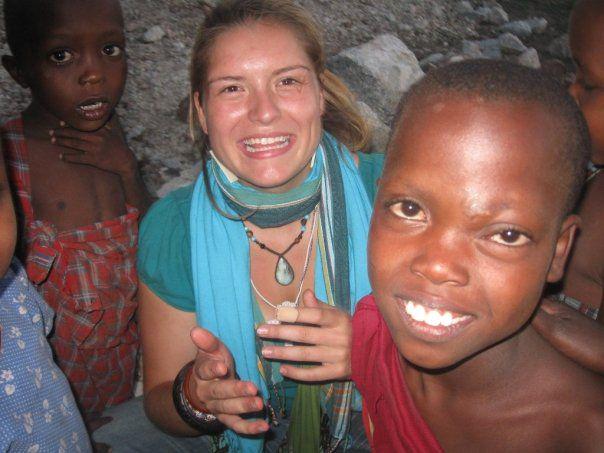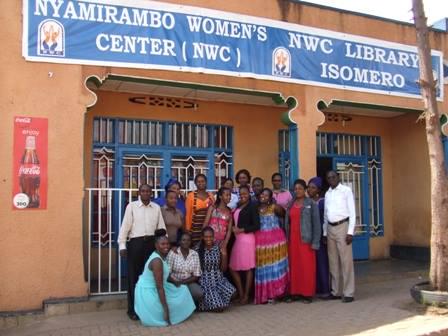

This article puts the spotlight on four such people who have decided to dedicate themselves to this work. They return to Africa time and time again. Some spend summers there as volunteers, while others, smitten by the mysterious charms of this continent, even make their homes there.
Africa - an inspiring environment
"Hmm, isn't it that rather a Slovenian approach: to place the nation’s self-respect or the interest in its own culture at the centre of development projects?", wonders Miha Logar, the director of Edirisa, a Uganda-based social enterprise, with its ideology based on his studies in Uganda and the influence of African intellectuals during his Master’s study there.
Edirisa (meaning "window" in the Ugandan language) is basically intended to change the image of Africa. According to Miha, this is definitely a continent with specific problems, but it is also an inspiring environment where many positive and interesting things happen. And it is not only Europeans but also, unfortunately, Africans themselves who have to be convinced about that.
Miha Logar has been living in Uganda since 2000 and in the past few years his main focus has been the "Gorilla Highlands" initiative, which promotes the south-western part of the country. By drawing attention to extraordinary natural beauty and astonishing history of these places, running treks and organising other activities, he hopes to significantly increase the number of travellers to Uganda. Their activities are designed in such a manner that most of the financial support goes directly into the hands of poor rural communities. Also the arrivals of visitors prove that Uganda is worthy of interest and that the inhabitants of that country can be proud of what their culture and country can offer. Miha has devoted particular attention to the tribe of Batwa Pygmies, who were forced out of the national parks twenty years ago. They are still in a desperate situation, with alcoholism making it even worse – the ever-repeating story of the Australian and American aborigines... Tourism is one of few possibilities to earn some money, though it must be underpinned by a respectful and rational approach.
Help for children with special needs
Jana Dular has been living in Eastern Africa since 2008, running various humanitarian projects. When she first came to Uganda, she took a job at Edirisa and used her own salary to start running a project of agricultural assistance to the Batwa community. She assisted in the renovation of the Special Needs Education Centre in Uganda, intended for children with special needs, who are generally looked down on as inferior because of their differences and who were living in unbearable conditions. She taught them how to plant crops and helped with basic teaching aids. During the first year of living in Tanzania, she assisted in the project of building a school for Maasai children in the region of Manyara.
From August 2011 to the present day, Jana has lived in the central African country of Malawi. There, she and her friend Bernarda Nemec established the ELA organisation to help children with special needs. With donations from the Ecologists without Borders Association, the ELA built its own educational and cultural centre in 2011. Each morning, the centre runs educational workshops to help children with special needs who attend free public schools but have major learning issues. And each afternoon, ELA’s centre, assisted by both the regularly employed teachers and Slovenian volunteers, runs educational workshops, where about 200 village children learn reading, writing, mathematics, English and so on. In this way Jana brightens the lives of many children with a lot of positive energy, love and attention and teaches them to have faith in themselves and their abilities.
Fascinated by the local environment
It was in 2009 when Maja Ladič first ventured into Rwanda, a country perhaps best known for the genocide of 1994. As a volunteer, she held interviews with women from the local community, where the Nyamirambo Women’s Centre was already in place. The centre became operational in 2007 with the assistance of the Peace Institute.
In the interviews, women talked about their lives, the challenges and issues that they have been facing, and about their needs. Most of them drew attention to poverty, lack of education, illiteracy, lack of knowledge of the law and of their rights, and a lack of the skills that would enable them to earn a basic income and to survive. Based on these interviews, a proposal was drawn up for the activities to be performed by the centre for the benefit of the inhabitants, mainly women from the local community. Maja Ladič was so fascinated by the local environment and the women she met there that, after coming back from Rwanda, she continued her work on development projects with the Peace Institute. They have just completed their sixth project and Maja has already paid her seventh visit to Rwanda.
They all know each other, help each other
This summer, after many years, Maja Drobne’s wish has finally come true. Engaged in a project run in Slovenia by Zavod Voluntariat, the Institute for International Voluntary Work, she travelled to Benin, a small country in Western Africa. Her work primarily focused on workshops with children and teenagers on healthy lifestyles, nutrition, and learning about nature and the environment in which they live. Additionally, she worked with a group of women engaged in the transformation of various products which are produced from the crops grown in the local environment.
The concepts of home address and bank accounts are unknown to the people living in the village: they have a completely different way of life and are honest, genuine and know how to live with each other. Their pace of life is slow, without stress and they know how to enjoy small things. Europeans are reproached for leading a vertical and individual life, whereas there people still live horizontally – they all know each other, help each other. There "a human is a human to a human". The experience from Africa has had a profound influence on Maja, making her realise that a hot shower and access to a refrigerator are not things to be taken for granted. That the honest smiles of children who do not know what an iPad is mean far more than a perfect internet connection. And that for a happy life we actually need significantly less than we might think.
Anja Polajnar, SINFO

































































